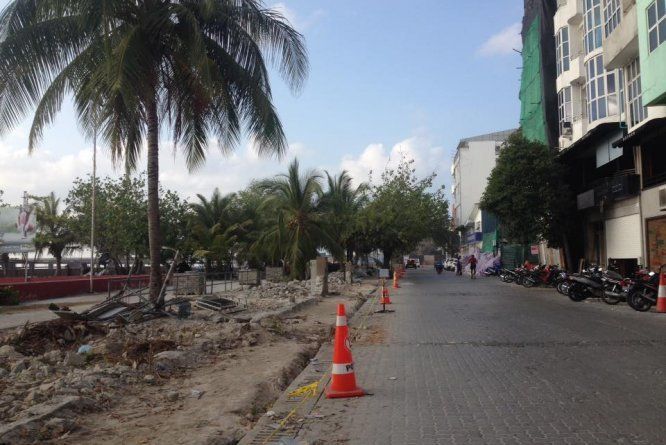Environment ministry ignored ring road project concerns
Top Environment Protection Agency officials said they were prevented from warning the housing ministry to stop the ongoing ring road work.

11 Apr 2018, 09:00
The environment ministry ignored concerns about the ring road expansion project in Malé, sources told the Maldives Independent on Wednesday.
Local media reported there was no environmental impact report for the expansion of the capital’s main outer road, Boduthakurufaanu Magu. Work began on the project two weeks ago, with decade-old trees on the outskirts of Malé felled to make room.
Top Environment Protection Agency officials said they were prevented from warning the housing ministry to stop the ongoing ring road work.
The officials who talked to the Maldives Independent wished to remain anonymous.
Become a member
Get full access to our archive and personalise your experience.
Already a member?
Discussion
No comments yet. Be the first to share your thoughts!
No comments yet. Be the first to join the conversation!
Join the Conversation
Sign in to share your thoughts under an alias and take part in the discussion. Independent journalism thrives on open, respectful debate — your voice matters.




